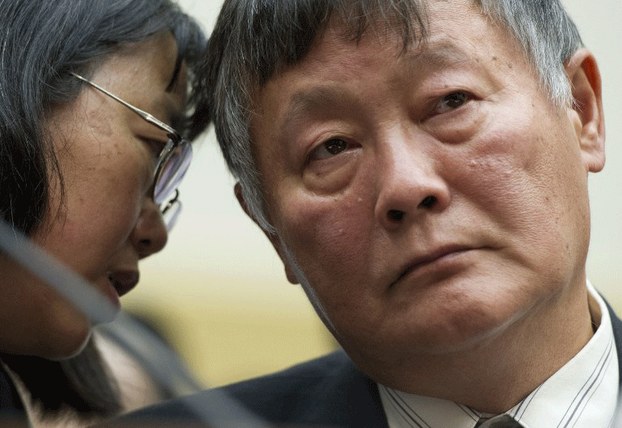




These days, people coming out of China are saying that there's no hope; that the days of hoping for peaceful change are past. It's not just regular folk saying this; people who are part of the political system are saying it too. Even more people are throwing up their hands and saying: "What can you do? Everyone knows the current situation is unsustainable, but what can be done about it?"
When there is nothing to be done about something, then the only thing left to be done is to change the people in charge, and change your system of government; ie, revolution.
Throughout history, attempts to rebel with cold steel haven't always been successful. The powers that be usually have a distinct advantage in terms of manpower and equipment. But the people keep learning lessons from their experience, tightening their planning and strategies with every attempt, until there comes a time when they can't be put down, and the powers that be eventually topple. This is how new regimes come into being.
Power rests on two factors
I don't know if [President] Xi Jinping and [Premier] Li Keqiang actually want peaceful evolution or not. But I do know that their power rests on two things: one is a body of corrupt officials of high and low rank; and the other is the fact that power in the upper echelons of the [ruling] Chinese Communist Party is distributed among the so-called 26 hereditary family groups. That is to say that the majority of China's wealth and power is in the hands of the relatives and cronies of just 26 families.
Xi Jinping has used the 100th anniversary of his father's birth to consolidate the connections between these clans. Basically, he is sending out a message that he will strengthen their grip on power. He has already made the choice between these families and the Chinese people; both the national interest and the Chinese people have been relegated to second place.
The thing he fears most of all is being toppled by those families in the manner of [late premiers] Hu Yaobang and Zhao Ziyang. But his choice is tantamount to choosing to be toppled by the people instead. The two things are irreconcilable, [because his administration] has already ruled out the possibility of reconciling them through peaceful political change.
Helpless
Thinking about it from Xi Jinping and Li Keqiang's point of view, we can see that they are actually pretty helpless. If they were to choose peaceful evolution, then that clique of supremely wealthy families would depose them, and replace them with a president and a premier who would be more amenable to direction. That is how things have been throughout several decades of Chinese Communist Party rule.
Anyone who tries to put pressure on Xi Jinping to change the political system is putting him in jeopardy. Those who pin their hopes on Xi Jinping are well-meaning people who don't understand the situation he is in. To ask Xi Jinping to move towards peaceful evolution is to ask him to quit his job.
Many people have finally seen through this political trend, and ordinary people will gradually come to see it clearly too. Gradually, our progress towards violent revolution is becoming inevitable. Only violence is effective against people and institutions that rely totally on violence to exist.
Can't rely on arguments
You can try to reason with bandits and thieves; it's your right to do so. But don't hold out much hope that they will let you speak out; they have the police and the army to handle "criminals" who won't see reason.
When a government relies entirely on force and not on arguments, we can't rely on arguments to change it. The only effective thing to do is to employ force to oppose or eliminate it. In adopting unreasonable policies, the Chinese Communist Party is forcing the Chinese people to adopt unreasonable methods.
Translated by Luisetta Mudie.
Wei Jingsheng is a U.S.-based veteran democracy activist who has served a total of 18 years in Chinese prisons for "counterrevolutionary" activities.